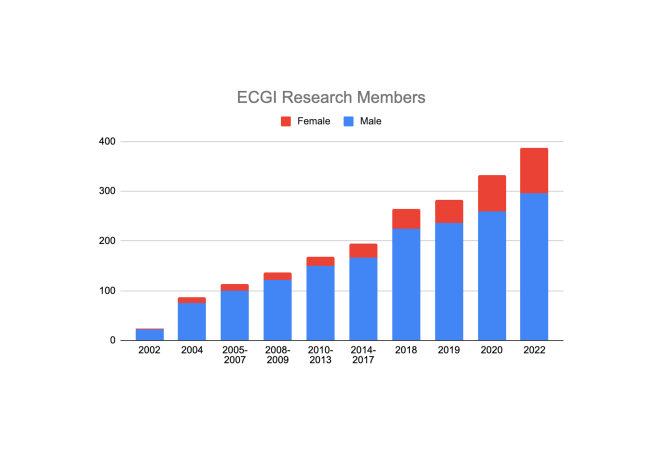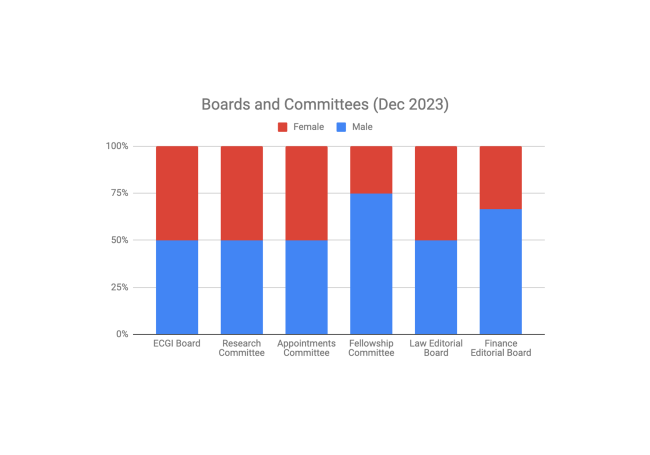Diversity, Equality, and Inclusion
ECGI strives to support all of its members in their professional activities. We acknowledge that the fields in both academia and practice are not level for all. Therefore we take additional care to ensure inclusive programming and appointments. We aim to do more for underrepresented groups in corporate governance but we need your help.


ECGI has evolved from a very small volunteer collective in 2002, into a significantly larger and more global volunteer collective. The collegiate spirit of debate and cooperation has endured through the years, with all 381 research members encouraged to submit their papers to the ECGI series, to attend and participate in ECGI events, and to collaborate on projects.
In earlier years, however, less attention was placed on the diversity of ECGI's appointed members, programmes, board and committee compositions, many of which were conceived or developed quickly. As a result, the depth of programming and discussion across ECGI activities did not adequately reflect the full extent of the growing network.
At the end of 2015, ECGI established an office and hired its first full-time permanent employee. Soon afterwards, it established many formal processes and a development plan. The plan prompted a discussion about the future of ECGI and a continued focus on its strategic direction and reputation. At this time, there was a strong consensus that the ECGI research network was not supportive enough of underrepresented groups including female scholars and minorities.
Since then, ECGI has worked hard to correct this imbalance, by identifying previously overlooked individuals for appointment, participation on programmes, and recruitment to committees and boards. It now has strong female representation on all boards and committees and has established guidance points for collaboration requests, such as a minimum of 40% female participants on conference programmes.
2020 was the first year that more female scholars (28) were appointed than male scholars (22). This was the result of a concerted effort in messaging, planning and the pro-active identification of potential candidates which was not undertaken in previous years. Although not a minority group in the global sense, female scholars still account for only 24% of the ECGI research network. Research indicates that the average number of female finance faculty in the top 100 US universities is 16%. ECGI compares with the upper range in this group. However, ECGI is not a US university, nor is it a finance network. It is a global network for corporate governance scholars and therefore difficult to benchmark against some of the published data.
Following the challenging pandemic period, the discussion at ECGI about how to provide greater opportunities and stimulus for underrepresented groups across the ECGI network and its activities was re-ignited by its board and committees. Gender is not the only consideration to be reviewed. If ECGI is to develop globally, then it should aim to be representative of a broad range global perspectives. ECGI will play its part in developing the pool of candidates for future appointment as research members.
The ECGI Board aims to deliver a clear policy and set of objectives regarding diversity and inclusion in the coming year.


How can you support diversity at ECGI?
ECGI needs volunteers to lead this initiative and financial support to make it effective. Small contributions can facilitate small steps such as an independent review, workshop, survey and policy formulation. Larger contributions can facilitate travel funds, ambassador programmes, prizes, grants, work experience, and scholarship support.